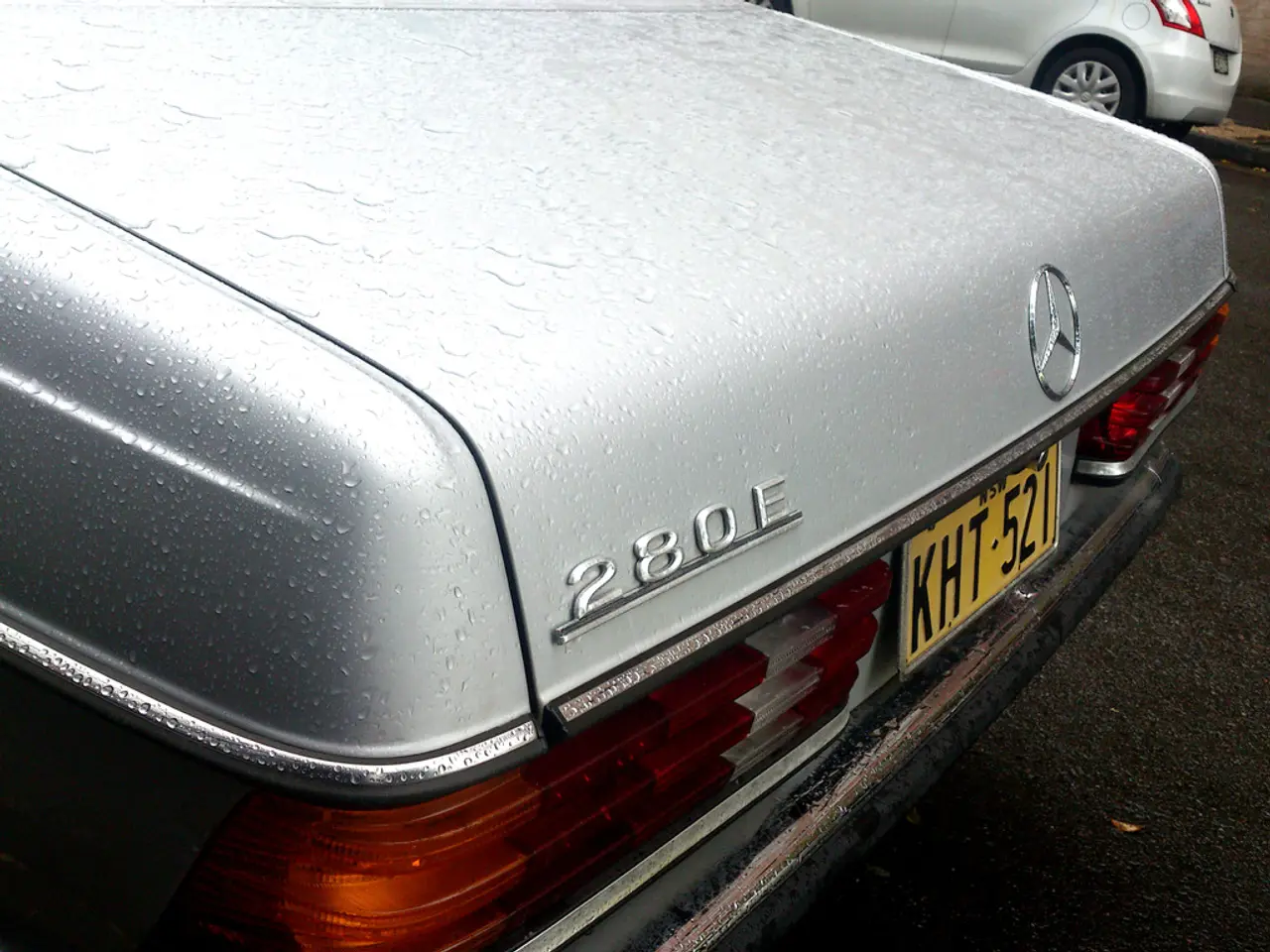Decline in Mercedes-Benz's Earnings Exceeds 50% - Mercedes-Benz experiences a substantial decline in earnings, exceeding a 50% reduction
In a sobering announcement, the Stuttgart-based automaker Daimler, parent company of Mercedes-Benz, has revealed a significant decline in the profit of its flagship division. The Mercedes-Benz division's net income has dropped by more than half, from approximately 6.1 billion euros in the same period last year to around 2.7 billion euros in the first half of 2021.
The profit reduction is primarily attributed to several key factors. These include significantly lower unit sales, negative net pricing effects, a higher share of leasing, supply chain disruptions, and increased cost pressures due to rising raw material and energy prices. Despite continued strong demand, these challenges have led to a sharp decline in earnings before interest and taxes (EBIT) and adjusted EBIT.
Lower unit sales compared to the prior year have impacted overall revenue and profitability. For instance, Mercedes-Benz Cars' revenue decreased by about 8% in the first half of 2021, accompanied by a 51% drop in EBIT. Negative net pricing effects mean the company faced pricing pressures, reducing margins despite some product improvements.
A higher percentage of vehicles sold through leasing models, which typically generate lower short-term margins, is another contributing factor. Supply chain challenges, especially in semiconductor availability, have hampered production volumes. Rising costs for raw materials and energy have increased operational expenses, squeezing profits.
While Daimler Truck had a strong recovery in Q3 2021, with rising unit sales, revenue, and EBIT, Mercedes-Benz Cars and Vans faced continued profitability pressures in the first half as pandemic-related disruptions persisted.
In summary, Mercedes-Benz’s profit reduction was driven by a combination of declining sales volume, pricing challenges, cost inflation, and supply chain constraints impacting production and delivery during that period. The financial situation of Mercedes-Benz within Daimler has become unfavorable, with the financial performance deteriorating significantly. The approximate net income for the first half of the year is 2.7 billion euros, a substantial decline from the same period last year.
The community policy at Daimler, especially focusing on the Mercedes-Benz division, must address the financial challenges such as decreased unit sales, negative net pricing effects, increased leasing, supply chain disruptions, and escalating raw material and energy costs. To improve the employment policy, Daimler might consider strategies to increase sales in the industry sectors like transportation and automotive, while also seeking partnerships and financial investments to mitigate the sector-wide finance pressures.




